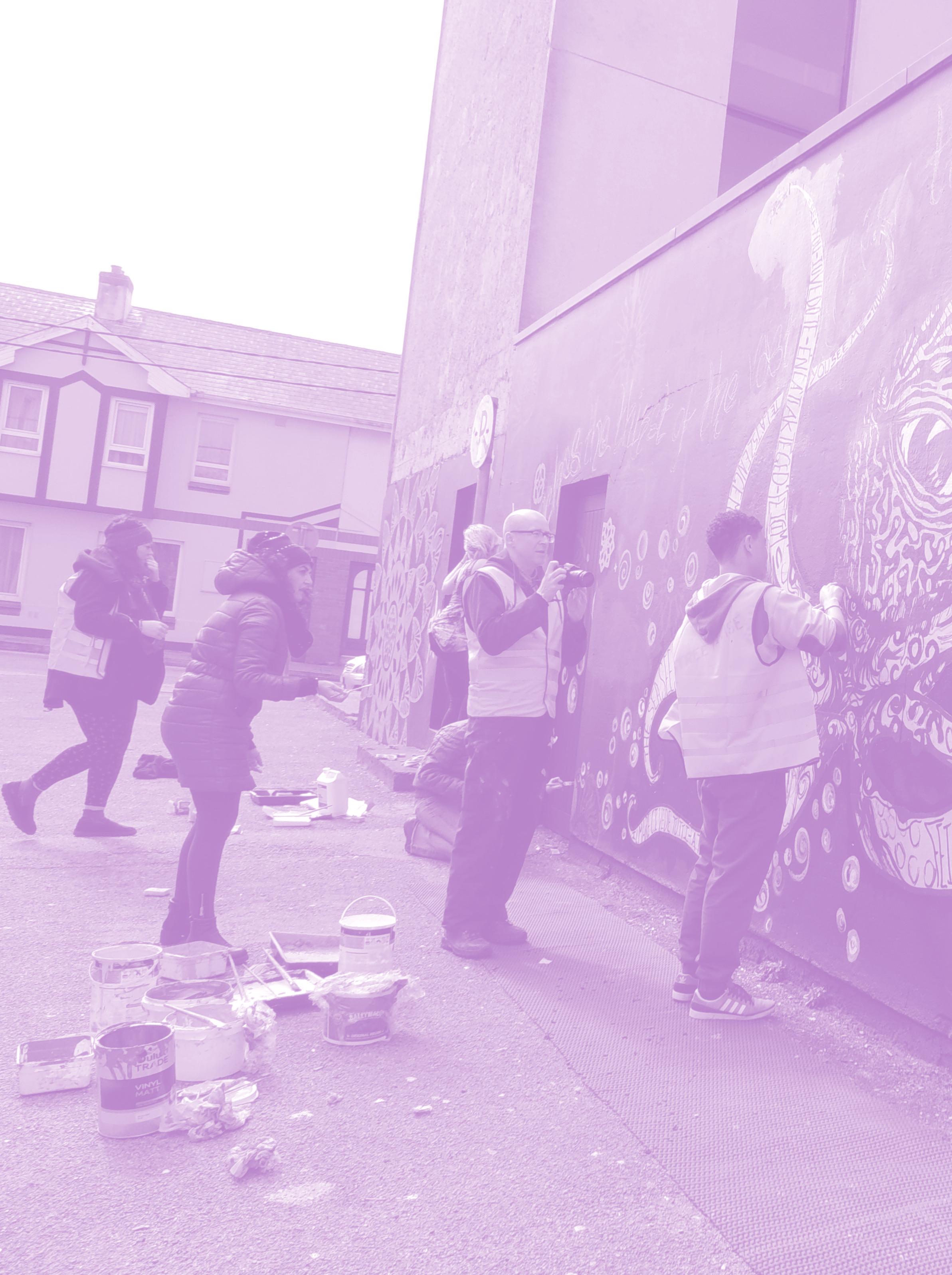
3 minute read
Implementation Phase
The implementation phase of any international youth project can be the most exciting and fun phase. The planning is complete and now it is time for the activities to start!
Documentation to have available
Advertisement
Participant details including relevant medical supports that may be required, allergies, etc.
Details of insurance, including travel insurance and procedures to follow in the case of an incident.
Participant details (application forms).
Copy of programme of activities.
First Aid certificate (if a leader is qualified).
Group contract for the project that has been signed by all participants.
Completed parental/guardian consent forms where required.
Emergency contact details for the host country and for the support personnel in Ireland.
Tickets for all travel, trips, etc.
Accommodation details including contact numbers and addresses in case the participants need to find their own way at any stage.
Organisation’s Child Protection Policy.
Implementing a Support System
Have a clear system of support for participants so they know who they can turn to if they have any difficulty day or night.
Have a support system for leaders so at they can request help if needed.
Sending and hosting organisations must each have a designated contact person in case of emergency. All participants and leaders should have contact details for this person.
Funding agency contact details if necessary.
Orientation
Host organisations/families should organise orientation processes and packs. These could include:
Welcome session.
Practicalities and logistics.
Programme introduction.
Cultural information.
Contact details.
‘Help me’ card with a message in the local language asking for assistance. For example, if a participant is lost and needs help to return to their accommodation the card will provide this information in the local language.
Details of the responsibilities of everyone involved.
A discussion of the group contract, and willingness to adapt if required.
Awareness and understanding of how to manage participants becoming homesick.
One central information point for participants which displays all necessary information in the languages of all participants.
Tools for orientation such as maps, directions etc.
Cultural ice breakers.
Leadership
International projects need to have a common understanding and a common position on important issues, particularly in emergency situations, and how to respond to these.
Leaders should meet daily.
Establish clear responsibilities for leaders and accompanying persons.
Put in place support system for leaders.
Leaders should know where participants are at all times – even during free time.
Leaders need to have a good system for keeping records.
Leaders should have a good, open and professional relationship with the participants.
Leaders should have adequate access to telephones for communication.
Responding to Child Protection Concerns
Adhere to the Child Protection Policy that has been agreed for the project and follow the procedures accordingly.
Take all safeguarding concerns seriously.
Protective actions may need to be taken depending on the nature of the concern.
Depending on the nature of the concern there may be a requirement for the participants to return home.
The Designated Liaison Person must be contacted immediately.
Use emergency contact numbers that have been documented for the project.
Maintain ongoing communications with the relevant stakeholders to ensure that any further decisions are agreed.
Where appropriate, contact police and/or child protection services such as Tusla.
Adhere to mandatory reporting requirements as stated in the Child Protection Policy.
Ensure there is adequate support in place for the person who is managing the concern.
Depending on the nature of the concern, there may be an impact on the future of the project. It is essential to consider how other participants may be negatively affected by what has happened.
Accommodation
If the project is using host families, regular meetings need to take place with them throughout the project.
Visit participants in the host family home to see how they are interacting with everyone.
Meet participants regularly and get a report on their accommodation arrangements. Allow them time and space to inform you if there are any difficulties.
In a situation of a serious difficulty arising with their accommodation, remove the participant immediately and make alternative arrangements as required. Follow the safeguarding procedures if the difficulty is related to a safeguarding matter.



